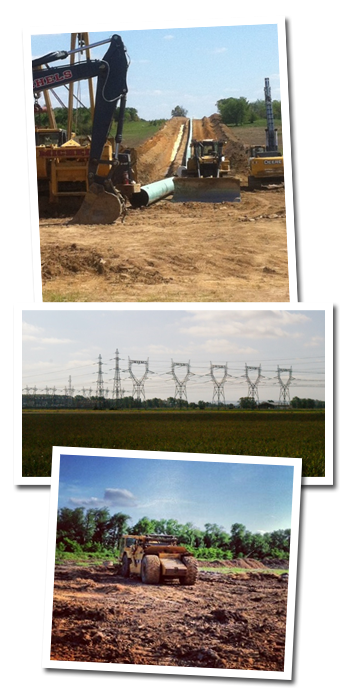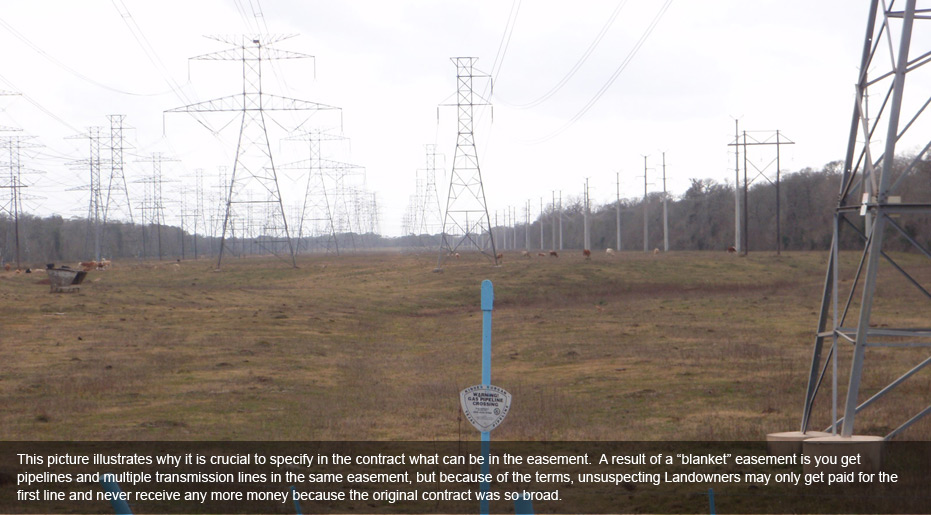Condemnation | Eminent Domain
“Let the people have property, and they will have power.” – Noah Webster,
“An Examination into the Leading Principles of the Federal Constitution”
October 17, 1787

What is eminent domain? The taking of a landowner’s property by a governmental entity, or public utility for a public purpose, is known as eminent domain. Condemnation is the legal process used for such a taking.
It is important to know that while the power of eminent domain is an inherent governmental power, it is also a limited power. The Fifth Amendment to the Constitution both acknowledges the power and limits its exercise by stating, “No person shall be deprived of life, liberty, or property without due process of law; nor shall private property be taken for public use, without just compensation.”
Most states have a similar amendment within their own constitution that not only restates the federal amendment but amplifies the limitations by summarizing the condemnation procedure to be followed.
The terms “condemnation” and “eminent domain” are often used interchangeably, but the two words do not mean the same thing.
Eminent Domain is the power to take private property for a public purpose.
Condemnation is the court proceeding and legal process of using the purported power of eminent domain.
Condemnation of property is unlike other proceedings and the ordinary rules of civil litigation do not apply. Instead, condemnation is a special proceeding guided by statute. Although some condemnation cases can be challenged on the basis of legitimate public use, most condemnation proceedings focus on providing the landowner with just compensation for the property taken.
Protecting Landowner Rights in Condemnation Proceedings

At the LandownerFirm, our attorneys are committed to working closely with our landowner clients throughout the condemnation proceeding in order to reduce damages to the property and maximize the landowner’s monetary recovery.
Condemnation of property proceedings typically start way before the formal legal process actually begins. Attorney Trae Gray believes there are many landmines involved in the pre-litigation process and that companies use the threat of condemnation to get more than they have a legal right to take.
How does this happen? Companies typically hire third party companies that have landmen or right-of-way agents to negotiate with landowners before the filing of a condemnation case. This is when the biggest injustice typically happens. Both unsuspecting and well-educated landowners, and non-landowner attorneys, agree to contract terms that are both overly broad and unduly burdensome.
The landowner gives up more rights than what the condemning company had a right to take in the first place. The results of these mistakes are everlasting. It is crucial that landowners get a landowner lawyer involved BEFORE they agree to or sign anything in order to prevent this from happening.
Condemnation of Property Proceedings
In most states, formal condemnation proceedings are initiated by the condemner (the entity seeking to take the property) who files a petition with the court asking the court to appoint three disinterested freeholders (commissioners). The commissioners are charged with inspecting the property, determining just compensation for the property, and rendering an award. Just compensation is typically defined as the fair market value of the property or the highest price that a willing seller could get from a willing buyer. In addition, just compensation includes any injury to any part of the property not taken.
Once the petition is filed, a court will instruct the commissioners to report their valuation of the property. The filing of the report of commissioners is important for a number of reasons.
- First, the filing of the report sets up unalterable deadlines. For instance:
- Failure to file objections to the commissioners’ report within thirty days waives the Landowner’s right to dispute the purpose of the taking.
- Failure to demand a jury trial within sixty days waives the landowner’s right to dispute the valuation set by the commissioners.
- Second, the landowner is entitled to immediate payment of the award even if he intends to contest the amount at a jury trial.
- Finally, in some states if a subsequent jury verdict exceeds the commissioner award by 10%, the landowner is entitled to be reimbursed by the company for their attorney’s fees. However, it is also possible for a landowner to be responsible for the condemning authority’s attorney fees, so this MUST be navigated properly.
Hire a Law Firm Experienced with Eminent Domain
Unlike many law firms, the LandownerFirm focuses on carefully defining the terms of the contract in order to secure the best possible outcome for the client. Our lawyers work to ensure that the governmental entity or public utility does not get more rights than it is lawfully entitled to receive.
A thorough understanding of the strategy involved with respect to this process is crucial to protecting the landowner. Being able to think ahead is vital to making sure the landowner does not get in a bind.
Our clients rely on our expertise and experience in this area to make sure they are getting the best terms and most value for their land when condemning companies come knocking on their door.
We represent landowners throughout the State of Oklahoma contact our law firm to schedule a consultation 888-439-4729. We’re here to protect your interests.

“No person shall be deprived of life, liberty, or property without ‘due process of law.’ “
U.S. Constitution, Fifth Amendment
PRIVATE PROPERTY SHALL NOT BE TAKEN WITHOUT JUST COMPENSATION
